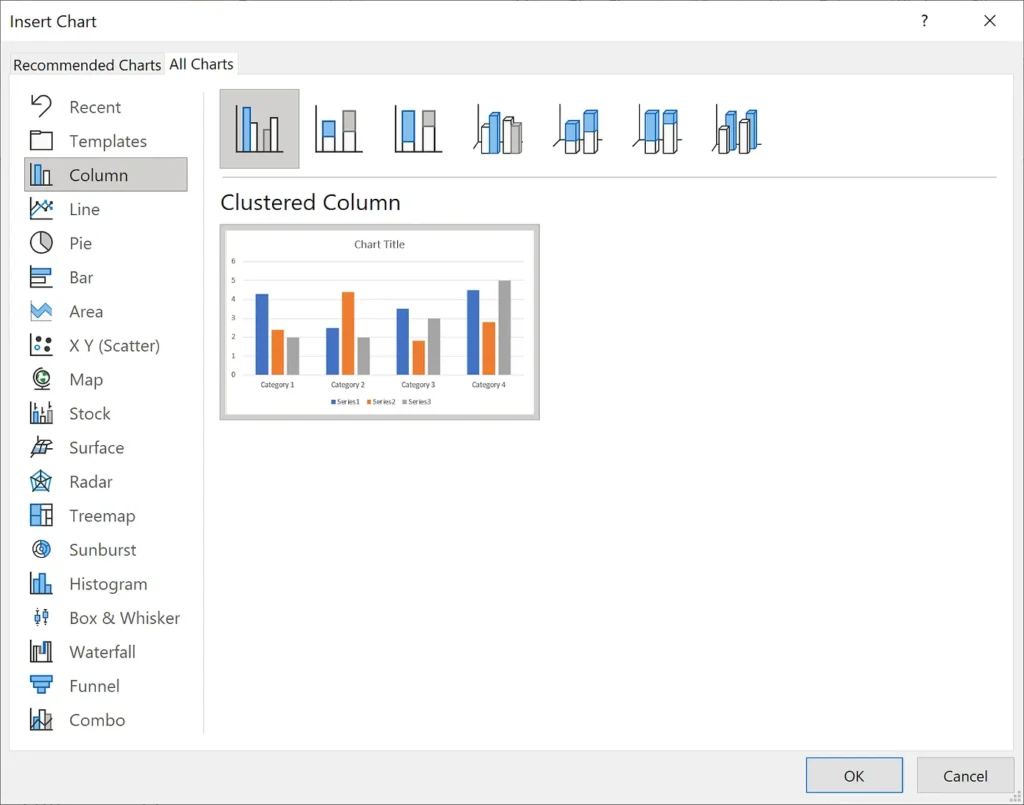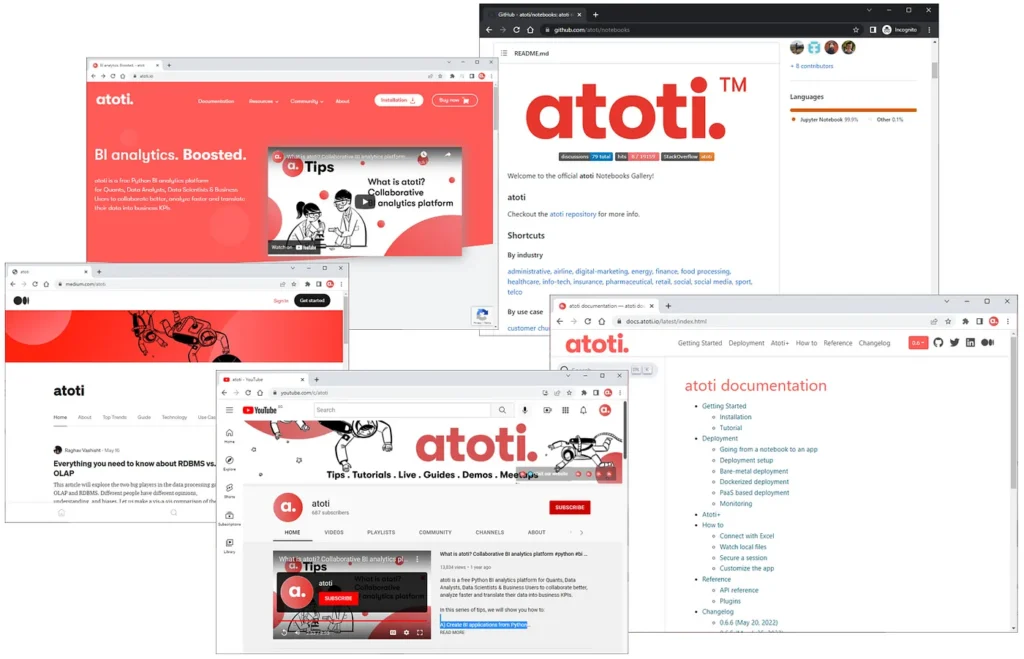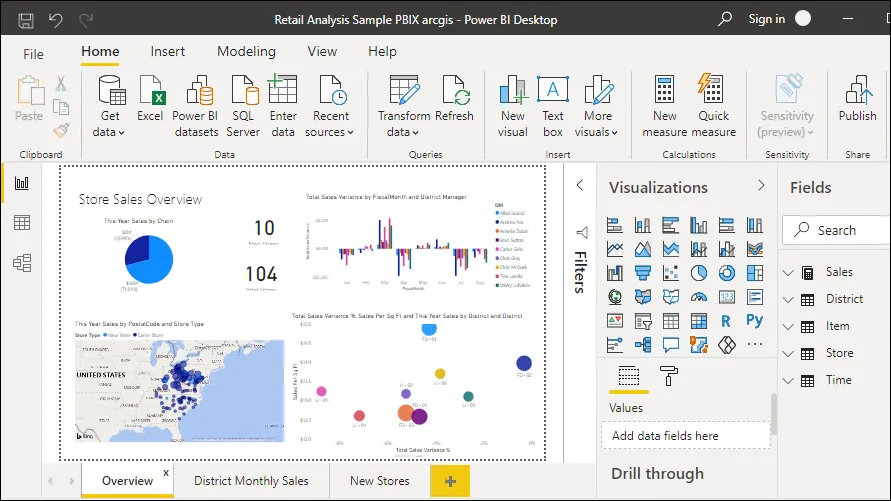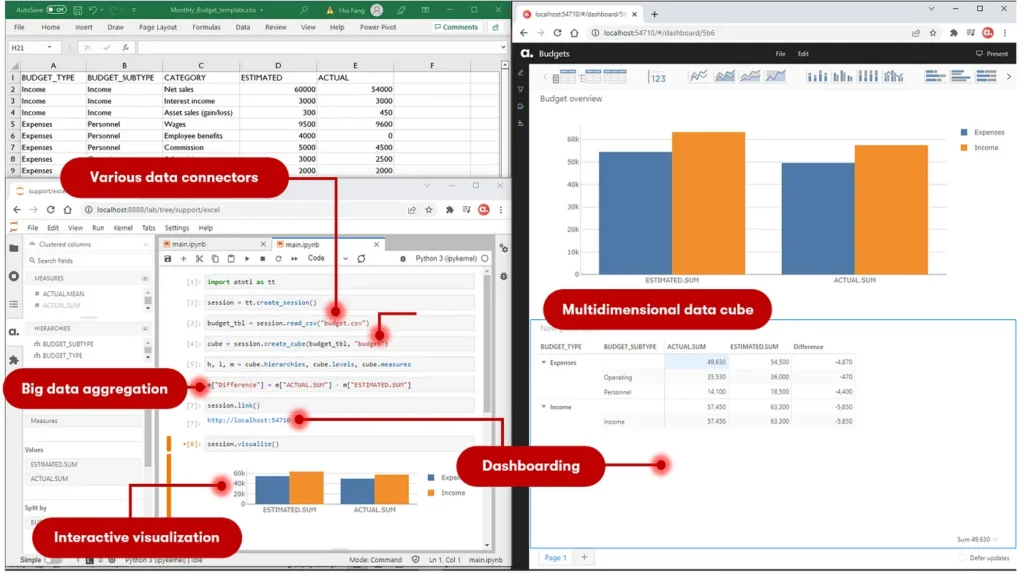Using Atoti instead of Excel for business analytics
Most companies hiring interns assign them modest levels of responsibility, freeing up other colleagues to pursue other more important tasks. Interns, on the other hand, gain entry-level experience outside of the classroom context.
If you haven’t been taking interns seriously, it’s time to change this perspective. As the saying goes:
No job is big or small, only thinking big or small makes it so.
Malek Zaidi has proved such a statement to be true. I spoke to the newly-minted graduate to find out what he did to not only improve his company but to secure a place for himself in the corporate world.
https://www.linkedin.com/in/malek-zaidi-b281761a1
Huifang: Could you please tell us a bit more about yourself?
Malek: My name is Malek Zaidi and I’m a 22-year-old Business Intelligence student at Tunis Higher Institute of Management (ISG). I did my internship as a data analyst in a company that provides virtual wallet services called Sobflous. Basically, I work with Big Data to find solutions that work for the company.
I’m more into Business Intelligence, performing scripted data analysis using tools such as Python, Talend and other ETL (extract, transform and load) tools.
I’m planning to dive into data science in the future as it is an interdisciplinary field that includes branches such as Business Intelligence, Mathematics and Statistics.
Huifang: Can you talk about some of the projects you are or have been involved in where data analysis was needed?
Malek: The project that I’m currently working on consists of setting up a Business Intelligence tool within the company.
In order to make better decisions by looking at the patterns of activities of merchants and resellers, and human resources performance, we need a tool that goes beyond the basic visualizations that Excel provides. The Excel visualization used by the enterprise is not able to provide us with the needed insights.

With Atoti, I built a dashboard for the human resources department, showing the different HR KPIs such as department, sales results and the number of hours worked by each employee. I have also made a dashboard for the commercial department, calculating the transactions that went through the resellers and providing information such as the most active resellers.
I think Atoti will help us better understand the company’s performance.
Huifang: Working as a data analytics intern, how far is the job from your expectation?
Malek: I’m used to working with smaller datasets. But when I started working here as an intern, I now need to manipulate large amounts of disorganized data. It’s a challenge to clean these data and draw useful insights from them for decision-making. However, I managed to solve the problems in the end.
Huifang: Are the things you learned in school relevant to your work?
Malek: You’re not going to apply all the things you learned in school because you are going to learn new technologies and new techniques.
For instance, I have learned to work in a team, make better suggestions, become a better listener and understand the needs of the users. After all, the best data analyst is one who knows how to listen and how to analyze an idea before materializing it.
Huifang: Working in a team is something new to you. Was it a challenge in communicating with the management when you propose Atoti for the BI tool?
Malek: Actually, the Atoti dashboards that I made facilitate the work and communication in the company.
The visualizations made the information easier and more accessible to both the managers and the team.
The managers have the freedom to interact with the dashboard. The web application is intuitive enough to use with minimal knowledge.
Huifang: How did you discover Atoti?
Malek: I discovered Atoti in one of the courses I took, where we manipulate OLAP cubes. After that, I really love the product and that got me to research it further. So, I found the website of Atoti and its LinkedIn page.
I liked how the website is organized. It has a lot of documentation and guides.

Huifang: What do you like most about Atoti that made you dive deeper into it?
Malek: Atoti is simple to use. I love what it offers as a Python tool as I use Python for data cleansing and analysis. I considered Atoti as a long-term management tool.
It supports real-time data loading, so we can append information whenever we need it. Also, I have to handle a large amount of data. We are talking about millions of rows of data and here comes Atoti that scales it more efficiently. I would say, it has better RAM management.
Let’s not forget that my project is about OLAP which makes Atoti the perfect tool for it. It gives me the flexibility to play with the data while focusing on the needs of the business.
Huifang: What other BI tools have you used before?
Malek: I worked with Power BI mostly. As you know, it’s the leading business intelligence tool and we are forced to work with it in school.
However, last year, the teachers in our school wanted us to work with Atoti rather than Power BI because Power BI doesn’t give you the opportunity to manipulate OLAP cubes.
Huifang: How would you compare your experience with Atoti against Power BI?
Malek:
Power BI has a storage limit of 10 GB. Atoti on the other hand has no such limits and is able to scale data efficiently.
It is not easy to share reports with Power BI. You have to make a snapshot of the report, download and then send it, making the process a bit harder. (We can share Atoti dashboards via its URL.)

If I have to sum up Atoti in one sentence, I would say it’s a game-changer in data science.
The language for Power BI is complicated and requires knowledge in programming. Atoti requires minimum knowledge and the language (Python) is way simpler.

Huifang: Are there any features that you wish could be there in Atoti?
Malek: I wish the user role management was available for the community edition.
[Huifang: Try Atoti+! It allows for security implementation and access management among a list of additional features.]
Huifang: Would you recommend Atoti to others?
Malek: I like the web application that comes with Atoti. It’s ergonomic. It has interactive widgets that allow me to perform most functions with a simple drag and drop. I also like the fact that Atoti is smart enough to automatically detect the measures and hierarchies, giving the count, the mean and the sum.
Now that I have implemented Atoti in the company, my team has also started working with it. I’m teaching them the basics of Atoti such as building a session, creating a cube, measures and so on. It’s also easy to teach them how to build the visualization with drag and drop.
I have intentions to show new users more of Atoti with tutorials and stuff. Keep a look out for my blog and video content.
In conclusion….Malek made an impact by proposing a tool that he thinks could help the company. He has shown that interns can also lead the way and be a mentor by bringing in fresh ideas. This could be anyone. So, know your tools well and propose them at the right moment to shine.


